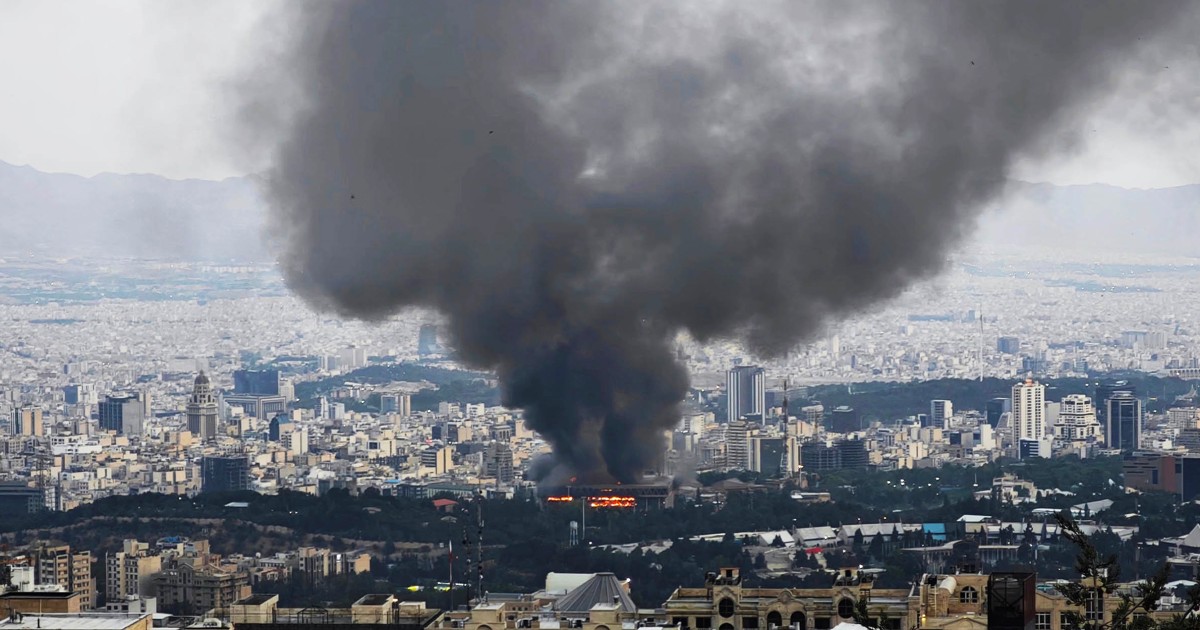President Trump’s Early Departure from G7 Summit
In a surprising turn of events, President Donald Trump returned to Washington just before 5 a.m. ET after leaving the Group of Seven summit in Canada earlier than expected. His departure was not without controversy, as it quickly became a topic of discussion among world leaders, notably French President Emmanuel Macron. The president chose to prioritize the escalating Israel-Iran conflict over the multinational discussions taking place at the G7.
Disputing Macron’s Assertion
During a press briefing aboard Air Force One, Trump addressed claims made by Macron that suggested his early exit was related to pursuing peace talks between Israel and Iran. Reacting to media queries, he stated unequivocally, "We’re looking at better than a ceasefire." This declaration pivoted the focus from a temporary halt in hostilities to a more definitive resolution.
A Vision Beyond Ceasefires
When probed about what he meant by "better than a ceasefire," Trump elaborated, “A real end. Not a ceasefire, an end.” His choice of words conveyed a sense of urgency and a desire for a long-term solution rather than a mere pause in conflict. This approach underscores North America’s ongoing concerns about Iran’s nuclear capabilities and destabilizing activities in the region.
Concern for Civilians in Tehran
As the conversation shifted to the safety of civilians in Iran, Trump dismissed the notion that his earlier comments regarding the potential evacuation of Tehran’s 10 million residents were threats. “I just want people to be safe,” he stated, expressing a humanitarian concern amidst the complex geopolitical landscape. However, his insistence that Iran "just can’t have a nuclear weapon" reiterated his administration’s hardline stance on national security.
Pointing Finger at Missed Opportunities
Trump also emphasized that Iran could have prevented recent tensions by adhering to prior agreements aimed at curbing its nuclear ambitions. He noted, “It might have avoided the Israeli attack if it had agreed on a deal… Would have saved a lot of lives!” This statement serves to remind audiences that diplomatic negotiations have often been fraught with missed opportunities.
Social Media Reflections
Shortly after landing, Trump took to Truth Social to reinforce his previous messages, clarifying that he had not initiated any form of peace talks with Iran. He left the door open for dialogue, stating, “If they want to talk, they know how to reach me.” This measured approach indicates a willingness to engage but underscores the preconditions that must be met from his administration’s perspective.
The Broader Implications
Trump’s actions and statements highlight a complex interplay of international relations and domestic pressures. His early departure from the G7 summit, combined with pointed remarks about Iran’s nuclear ambitions and the urgent need for peace, reflects a distinctive approach to diplomacy that prioritizes decisive action over prolonged negotiations. As global leaders watch closely, the implications of his choices resonate well beyond the summit itself, influencing perceptions of U.S. foreign policy in a highly volatile region.
This ongoing situation underscores the need for critical dialogue among world leaders and the delicate balance of diplomacy and security. Trump’s stance not only shapes his administration’s agenda but also impacts how allies and adversaries respond in a world increasingly characterized by geopolitical tensions.


